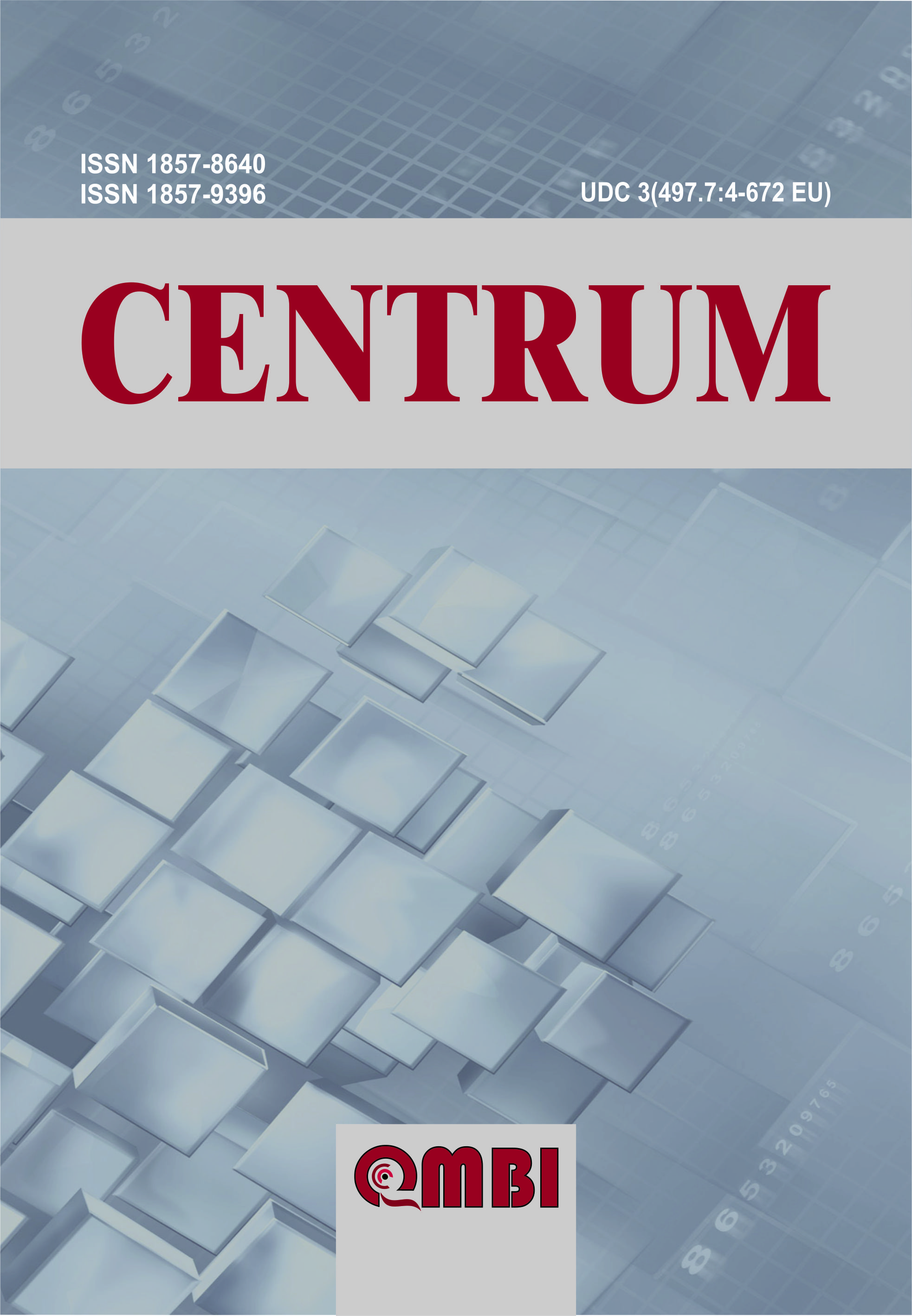
INTERNATIONAL SCIENTIFIC JOURNAL
Center for Understanding and Institutional Cooperation
ISSN: 1857-8640
DOI: 10.5897/UJ-CENTRUM
Email: centrum.qmbi@gmail.com
ETHICAL CHALLENGES FOR OBJECTIVE EXPERTISE IN THE REFORMED CRIMINAL PROCEDURE
DOI: 10.5987/UJ-CENTRUM.17.017.1 | Article Number: 5DAA11B917 | Vol.6 (1) - June 2016
Authors: Mickovski Nikola and Reckoski Risto
Keywords: expert witness, ethics, law, criminal procedure
Passing of the new Law on criminal procedure meant fundamen-tal changes of many institutes that for a long period existed as almost constant category in the previous criminal procedure legislative. Never-theless, the changes of the model often means that by the excepting of the comparative advantages of the new model, often in the package come the inherent disadvantages, too. Thus, the acceptance of the accu-satory model as a paradigm of the Macedonian criminal procedure me-ant acceptance of the basic postulates of the concept of the contradictory of the expertise, too, with all the advantages and disadvantages of this solution. Therefore, minimizing of the already reviewed disadvantages of this expertise concept as a main goal, new solutions have to be pro-vided and the existing solutions have to be adjusted, so disadvantages inherent with this model of expertise would be efficiently avoided.
As one of the most frequent and most serious disadvantages of the contradictory concept of expertise is the so called party bias. Name-ly, in the cases when the expert witnesses are engaged from the parties themselves, from different reasons, the aims of the party that engaged the expert witness are identified with the expert witness himself. The aim of this paper is to investigate the causes and consequences of this identification of expert witnesses and to check the possible outcomes, that is, whether through establishing of the new solid normative boundaries combined with establishing and revival of the solid ethical and professional standards, identified inconsistency of the party model od expert witnessing may be overpassed.
1. Soković Snežana, Veštačenje kao dokaz u krivičnom postupku, Pravni fakultet, Kragujevac, 1997
2. Langbein John H., The German Advantage in Civil and Criminal procedure, 52 U. CHI. L. REV. 823 (1985)
3. Bernstein, David E., The Unfinished Daubert Revolution (March 6, 2009). Engage, Vol. 10, No. 1, George Mason Law & Economics Research Paper No. 09-18. , 2009
4. Мицковски Н, Речкоски Р, Центрум, бр.5, 2016
5. Frankel, Mark S., Ethics and the Forensic Sciences: Professional Autonomy in the Criminal Justice System, 34 J. FORENSIC SCI. 763, 764–65 (1989)
6. Richmond Douglas R., Regulating Expert Testimony, 62 MO. L. REV. 485, 486–87 (1997)
7. Sanchirico William C., Evidence, Procedure, and the Upside of Cognitive Error, 57 STAN. L. REV. 291, 2004
8. Gross, Samuel R., Expert Evidence, 1991 WIS. L. REV. 1113, 1991
9. Cheng, Edward K. and Albert H. Yoon, Does Frye or Daubert Matter? A Study of Scientific Admissibility Standards. Virginia Law Review 91:471-512, 2005
10. Cohen K. S., Expert Witnessing and Scientific Testimony, CRC Press, New York, 2008
11. Faigman David L., Legal Alchemy: The Use and Misuse of Science in the Law (W.H. Freeman & Co. 2009, 2000)
12. Sabol, Z., Eticki postulati u sveri vjestacenja, Vjestak, 1/85, 1985
